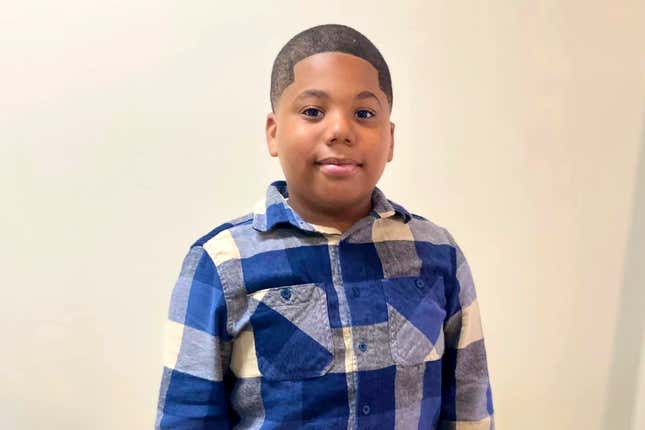
JACKSON, Miss. (AP) — A Mississippi grand jury has declined to indict a police officer who responded to a call, and shot and wounded an unarmed 11-year-old boy inside the home.
The grand jury found that Indianola Police Sgt. Greg Capers did not engage in criminal conduct when he shot Aderrien Murry in the chest on May 20 while responding to a domestic dispute. Murry was hospitalized for five days with a collapsed lung, lacerated liver and fractured ribs from the gunshot wound in his chest.
The Mississippi Attorney General's Office, who presented the case to a Sunflower County grand jury, announced the decision Thursday. In a written statement, Carlos Moore, Murry's attorney, said the family would seek accountability through a federal civil lawsuit.
“While the grand jury has spoken, we firmly believe that there are unanswered questions and that the shooting of Aderrien Murry was not justified,” Moore said. “We are committed to seeking justice for Aderrien and his family.”
Reached by phone Thursday, Michael Carr, Capers' attorney, said the officer had suffered personally and financially due to the case and that the grand jury made the right decision.
“Sgt. Capers is relieved at the result, and he is glad that the citizens of Sunflower County reached the fair and correct result," Carr said. "He is looking forward to continuing to serve the citizens of Sunflower County and the city of Indianola.”
The Indianola Board of Aldermen voted in June to place Capers on unpaid administrative leave. Capers cannot return to work and get paid unless the Board votes to take him off leave, Carr said.
Indianola is a town of about 9,300 residents in the rural Mississippi Delta, about 95 miles (153 kilometers) northwest of Jackson.
On the May evening of the shooting, Nakala Murry asked her son to call the police around 4 a.m. when the father of one of her other children showed up at her home, Moore said. Two officers went to the home, and one kicked the front door before Nakala Murry opened it. She told them the man they called about had left, and that three children were inside the home, Moore said.
According to Nakala Murry, Capers yelled into the home and ordered anyone inside to come out with their hands up, Moore said. He said Aderrien Murry walked into the living room with nothing in his hands, and Capers shot him in the chest.
The Murry family has filed a federal lawsuit against Indianola, the police chief and Capers. The lawsuit, which seeks at least $5 million, says Indianola failed to properly train the officer and that Capers used excessive force.
With the grand jury's decision, the Attorney General's Office said no further criminal action at the state level would be taken against Capers. ___ This story has been corrected to show that the grand jury found that Capers did not engage in criminal conduct, not that he had engaged in criminal conduct.
___
Michael Goldberg is a corps member for the Associated Press/Report for America Statehouse News Initiative. Report for America is a nonprofit national service program that places journalists in local newsrooms to report on undercovered issues. Follow him at @mikergoldberg.